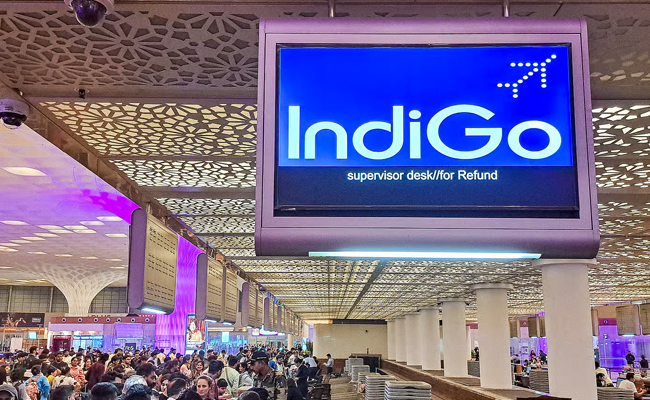New Delhi, Aug 8 : Former BJP ministers Yashwant Sinha and Arun Shourie on Wednesday alleged that the Rafale jet deal was "unilaterally" finalized by Prime Minister Narendra Modi by violating mandatory procedures, and this defence scandal was "larger than any thus far."
Activist-lawyer Prashant Bhushan, who addressed the media with the former NDA ministers, said the manner in which the order for Rafale jets was changed made for a "clear case of criminal misconduct". Besides the "gross violation of mandatory procedures," a public sector undertaking was "inexplicably dropped" from the project, he said.
Demanding a time-bound probe by the Comptroller and Auditor General (CAG) of India, they asked the government to come clean on the issue.
"If the Modi government had stuck to the old deal (negotiated by the UPA government), we could have already got 18 aircraft in flyaway condition and production would have started on the rest of 108 in India. But a new deal of 36 aircraft was finalized without due procedure. Ye raat ko ilhaam kahan se aaya (When did this divine revelation come)?" Shourie asked.
"A new deal was finalized without floating any fresh tenders and the public was given to believe that we would get these aircraft in ready-to-fly condition within two years. But the fact is that we will get all the 36 in batches that would complete by mid 2022."
Bhushan said the government was trying to hide behind a secret clause in order to avoid revealing the cost of each jet, but this clause did not actually pertain to prices.
He said as per the prices revealed by Dassault Aviation, the final cost of each aircraft along with weapons, equipment and technology transfer is more than double the rate finalised in the old deal.
Sinha pointed out that the Cabinet Committee on Security (CCS), which should have vetted and cleared the deal first, was "nowhere in the picture" when Modi signed the deal in April 2016, and the CCS was seized of the matter around one year after the deal had been signed.
"The CAG should complete the forensic audit of the deal within three months and place its report in the public domain. We cannot hinge our hopes on Joint Parliamentary Committee (JPC) as the present Lok Sabha is on its last legs and JPC cannot take it up now," Sinha said.
Asked if they would move the court in the matter, Bhushan replied in the negative, citing various reasons, including the judicial climate.
Let the Truth be known. If you read VB and like VB, please be a VB Supporter and Help us deliver the Truth to one and all.
Bengaluru (PTI): The Karnataka government has issued directions to municipal corporations across the state to regulate and prohibit feeding pigeons in public places, citing serious public health concerns.
Deputy Secretary to Government V Lakshmikanth has written to the Urban Development Department requesting it to issue directions to the Greater Bengaluru Authority (GBA) and all municipal corporations to take immediate steps to implement the measures.
In an official note dated December 16 issued by the Health and Family Welfare Department and released to the media on Wednesday, the department said uncontrolled feeding of pigeons in public places has resulted in large congregations of birds, excessive droppings and serious health concerns, particularly respiratory illnesses linked to prolonged exposure to pigeon droppings and feathers such as hypersensitivity pneumonitis and other lung diseases.
ALSO READ: Chinese GPS tracker found on seagull near Karwar Coast
"The commissioner, the Greater Bengaluru Authority and the Commissioners and chief officers of other municipal corporations shall take necessary action to mitigate the causes of dangerous disease spread by pigeon and enforce specified guidelines in their respective jurisdiction," the note said.
According to the department, these include a prohibition on feeding pigeons or causing pigeons to be fed in areas where it may cause nuisance or pose a health hazard to the public. Pigeon feeding shall be permitted only in designated areas in a controlled manner, subject to certain conditions.
"The designated areas may be selected in consultation with stakeholders. The responsibility for upkeep of the designated areas and compliance to the directions shall be taken up by some charitable organisation or an NGO. The feeding in designated areas shall be permitted only for some limited hours in the day," it said.
The note further stated that authorised officers of local authorities shall issue on-the-spot warnings and may impose fines for violation of the order, or lodge complaints to prosecute offenders under Sections 271 (Negligent act likely to spread infection of disease dangerous to life) and 272 (Malignant act likely to spread infection of disease dangerous to life) of the Bharatiya Nyaya Sanhita.
It also directed local authorities to conduct public awareness campaigns, including the display of signboards, banners and digital messages, explaining the health hazards associated with pigeon droppings and feathers, the content of the regulatory directions and penalties for violations, and alternative humane methods of bird conservation that do not endanger public health.





